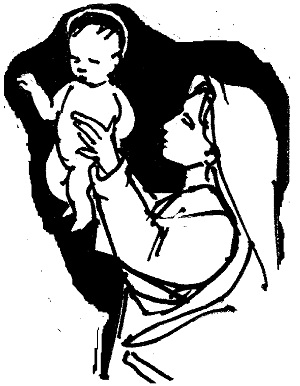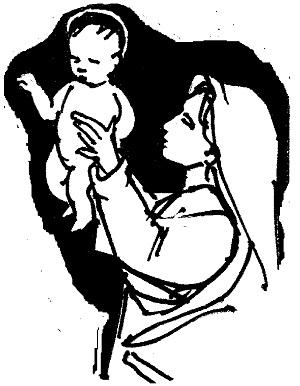

“In him shall all the tribes of the earth be blessed” (Psalm 72:17).
Gen 49:2, 8-10; Matthew 1:1-17
Anyone who has attempted a family genealogy knows the treasures and puzzles waiting to be uncovered. Ancestors may include figures who validate claims to family importance or misfortune, even surprises about relatives we didn’t know we had. Bible genealogies were links to tribal membership and the privileges that went with it. Being listed in the genealogy was proof of descent and the right to promises made to its progenitor. There are two genealogies in the Gospels, one in Matthew showing Jesus in the line of Abraham and the other in Luke going all the way back to Adam.
Much is made of lineage as a credential in the New Testament. Jesus’ critics are continually asking him who he is, where he is from, by what authority he is teaching. The evangelists are eager to show that he is of the line of David, why Joseph and Mary go to Bethlehem in Judea for the census, establishing his birthplace and his link to Judah, son of Jacob, son of Isaac, son of Abraham.
Matthew’s genealogy has royal links, but also mentions five women with stories of their own that reveal how mysterious was the path of succession that flowed into Jesus. Tamar, Rahab, Ruth and Bathsheba join Mary in the matrilineal line, adding intrigue to the long paternal and legal identity of Jesus. Each name is worth researching as proof that the humanity of Jesus did not spring magically from a single divine intervention but was embedded in the long history of Israel and origins of the whole human race.
Jesus is one of us, not a visitor or a divine person in disguise, pretending to share our limitations or able to slip in and out of human vulnerability by retreating to higher awareness or control. Born of woman, under the law, he is subject to the full human condition, including suffering and temptation. St. Paul quotes an early hymn in Philippians 2:6-8 about Jesus, who “did not consider equality with God a thing to be grasped … but emptied himself, becoming a servant, subject to death, even death on the cross.”
The Incarnation we celebrate at Christmas is a focus of inexhaustible reflection about the meaning of both God and our own humanity. The mystery of Jesus gave human genealogy the promise of divine life. His presence among us, his earthly life, death and resurrection, opened a new horizon for human longing and hope. The already astonishing scope of our shared search for meaning and purpose in the universe is also an invitation to find the divine face gazing back at us, sustaining us and everything in existence. The Word made flesh at Creation is the story of our progress through time toward the fullness of grace. The joy of Christmas is knowing just how wonderful we are.
Advertisement








